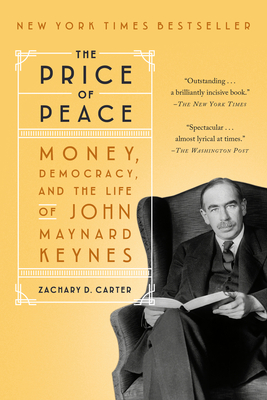Expedite your nonfiction book discovery process with Readara interviews, summaries and recommendations, Broaden your knowledge and gain insights from leading experts and scholars
In-depth, hour-long interviews with notable nonfiction authors, Gain new perspectives and ideas from the writer’s expertise and research, Valuable resource for readers and researchers
Optimize your book discovery process, Four-to eight-page summaries prepared by subject matter experts, Quickly review the book’s central messages and range of content
Books are handpicked covering a wide range of important categories and topics, Selected authors are subject experts, field professionals, or distinguished academics
Our editorial team includes books offering insights, unique views and researched-narratives in categories, Trade shows and book fairs, Book signings and in person author talks,Webinars and online events
Connect with editors and designers,Discover PR & marketing services providers, Source printers and related service providers

The Price of Peace: Money, Democracy, and the Life of John Maynard Keynes
Business & Economics > Economic History
- Random House Trade
- Paperback
- 9780525509059
- -
- -
- Business & Economics > Economic History
- (Single Author) Asian American
- English
Readara.com
Book Description
A timely, lucid and compelling portrait of a man whose enduring relevance is always heightened when crisis strikes.--The Wall Street Journal
FINALIST FOR THE NATIONAL BOOK CRITICS CIRCLE AWARD FOR BIOGRAPHY - NAMED ONE OF THE TEN BEST BOOKS OF THE YEAR BY PUBLISHERS WEEKLY AND ONE OF THE BEST BOOKS OF THE YEAR BY Jennifer Szalai, The New York Times - The Economist - Bloomberg - Mother Jones
At the dawn of World War I, a young academic named John Maynard Keynes hastily folded his long legs into the sidecar of his brother-in-law's motorcycle for an odd, frantic journey that would change the course of history. Swept away from his placid home at Cambridge University by the currents of the conflict, Keynes found himself thrust into the halls of European treasuries to arrange emergency loans and packed off to America to negotiate the terms of economic combat. The terror and anxiety unleashed by the war would transform him from a comfortable obscurity into the most influential and controversial intellectual of his day--a man whose ideas still retain the power to shock in our own time.
Keynes was not only an economist but the preeminent anti-authoritarian thinker of the twentieth century, one who devoted his life to the belief that art and ideas could conquer war and deprivation. As a moral philosopher, political theorist, and statesman, Keynes led an extraordinary life that took him from intimate turn-of-the-century parties in London's riotous Bloomsbury art scene to the fevered negotiations in Paris that shaped the Treaty of Versailles, from stock market crashes on two continents to diplomatic breakthroughs in the mountains of New Hampshire to wartime ballet openings at London's extravagant Covent Garden.
Along the way, Keynes reinvented Enlightenment liberalism to meet the harrowing crises of the twentieth century. In the United States, his ideas became the foundation of a burgeoning economics profession, but they also became a flash point in the broader political struggle of the Cold War, as Keynesian acolytes faced off against conservatives in an intellectual battle for the future of the country--and the world. Though many Keynesian ideas survived the struggle, much of the project to which he devoted his life was lost.
In this riveting biography, veteran journalist Zachary D. Carter unearths the lost legacy of one of history's most fascinating minds. The Price of Peace revives a forgotten set of ideas about democracy, money, and the good life with transformative implications for today's debates over inequality and the power politics that shape the global order.
Author Bio
Zachary D. Carter is a Writer in Residence with the Omidyar Network's Reimagining Capitalism initiative. He spent 10 years as a senior reporter at HuffPost, where he covered economic policy and American politics. He is a frequent guest on cable news whose work has appeared in The New York Times, The Wall Street Journal, The Washington Post, The New Republic, The Nation, The American Prospect and other outlets.
Zachary began his career at SNL Financial (now a division of S&P Global), where he was a banking reporter during the financial crisis of 2008. He wrote features about macroeconomic policy, regional economic instability, and the bank bailouts, but his passion was for the complex, arcane world of financial regulatory policy. He covered the accounting standards that both fed the crisis and shielded bank executives from its blowback, detailed the consumer protection abuses that consumed the mortgage business and exposed oversight failures at the Federal Reserve and other government agencies that allowed reckless debts to pile up around the world.
At HuffPost, Zachary covered the implementation of the 2010 Dodd-Frank financial reform law, political standoffs over trade policy and the federal budget, and the fight over the future of the Democratic Party. His feature story, “Swiped: Banks, Merchants and Why Washington Doesn't Work for You” was included in the Columbia Journalism Review’s compilation Best Business Writing.
Zachary graduated from the University of Virginia, where he studied philosophy and politics. He lives in Brooklyn, New York.
Source: zacharydcarter.com
Videos
No Videos
Community reviews
No Community reviews

